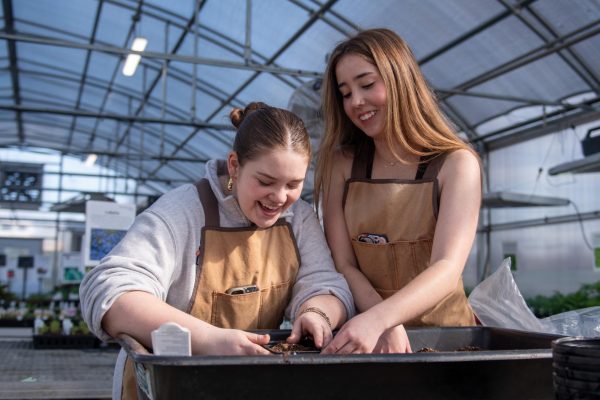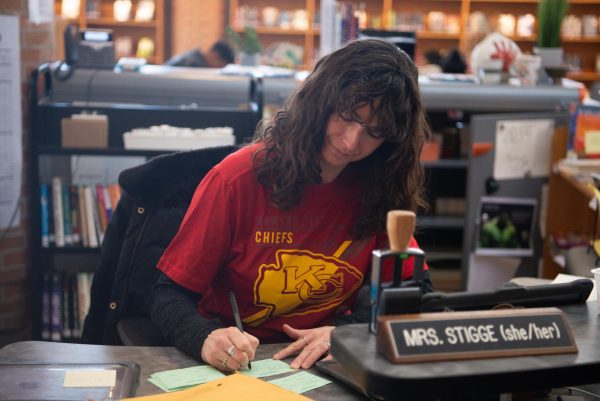The Road to Robotics Worlds
Sophomore Angelina Ortega speaks on the ups and downs of the path to World level Robotics Competition
May 22, 2018

Walking laps by the band room, waiting for the passing period bell to ring, Angelina Ortega tells her story about being in Robotics.
Shawnee Mission Northwest’s 12 member Robotics team (including Ortega) won regionals,listen automatically sending them to the worlds competition. Teams from all over the U.S. came to Kansas to try to qualify for worlds, and were beaten out by the homegrown team.
The road to regionals wasn’t an easy one. Ortega explains listen that teams play a number of qualification matches, then based on that teams get ranking points. At the end of the qualification matches the top 8 teams get to pick an alliance with two other people, teams of two. 24 teams then get put into a bracket play; semi finals, quarter finals, finals, to choose two of the top alliances, and those three people are the winners.
Every year the teams are given a new game at the beginning of build season.
“Build season is technically only 45 days, we get exactly 45 days to build. After that you’re what’s called ‘stop build’ you put your robot in a bag and if you touch it after that you’re disqualified,” Ortega said, pushing up her glasses.
This year, the teams were given a game called “Power Up.”
“You had to put a series of cubes and switches on a scale, and whoever had the scale in their favor the longest wins, or gets the most points to win,” Ortega said with a carefree attitude.
Robotics takes a lot of time. With Ortega’s other commitments like softball, bowling, online classes, golf, band, and a full-time job, she still finds time to participate in Robotics.
“During build season you’re there 6 days a week. Saturdays you have a longer meeting, Tuesdays it’s 3-9, Thursdays its 3-9, Wednesdays it’s 3-6. We’re there for at least 20 hours a week,” Ortega said and took a deep, exhausted breathe.
Being a full time student and vice captain on the Robotics team requires a good sense of time management. Ortega humbly says she does not handle it all well. Ortega’s advice to all is to make a schedule.
“Make a schedule. Make a schedule,” Ortega says in a telling voice, “Don’t be dumb,” She said with a laugh. “Don’t try to take on too much either.”
Because of the time and effort she has put into Robotics, she has learned important skills that have bettered her a person. A few of the main things Ortega has gotten out of Robotics is better leadership skills and responsibility.
“I am a vice captain which means I have a lot of responsibility on the team. I’m also a drive coach, which means I talk to other teams about strategies for your matches. I have really bad anxiety, and it’s helped to build my ability to communicate. Now I’m actually being able to have a fluent conversation with people I don’t know,” Ortega said.
Robotics is a predominantly male activity, so there will be struggles with being the only girl on the team.
“It’s horrible,” Ortega says jokingly, “No, it’s a little intimidating because, I mean I’m surrounded by guys 24/7. I’m kind of like a team mom. I make sure everyone’s together, make sure everyone’s hair is done. Make sure everyone’s taken a shower,” Ortega says with a smile.
A common misconception about being on the Robotics team is that everyone goes in knowing how to build, and has abundant knowledge on wiring.
listen “Don’t get me wrong, it’s going to help, but I mean we have kids that walk in and don’t know what the heck they’re doing,” Ortega said. “Then we teach them on the go. I mean it’s a great place to learn skills you never thought you’d need before.”
Ortega highly recommends joining robotics. The team has twelve members, and is losing five seniors, so the need for new members is strong.
“Everyone, please join the team,” Ortega says pleadingly, “Especially girls,” She said with a laugh.








